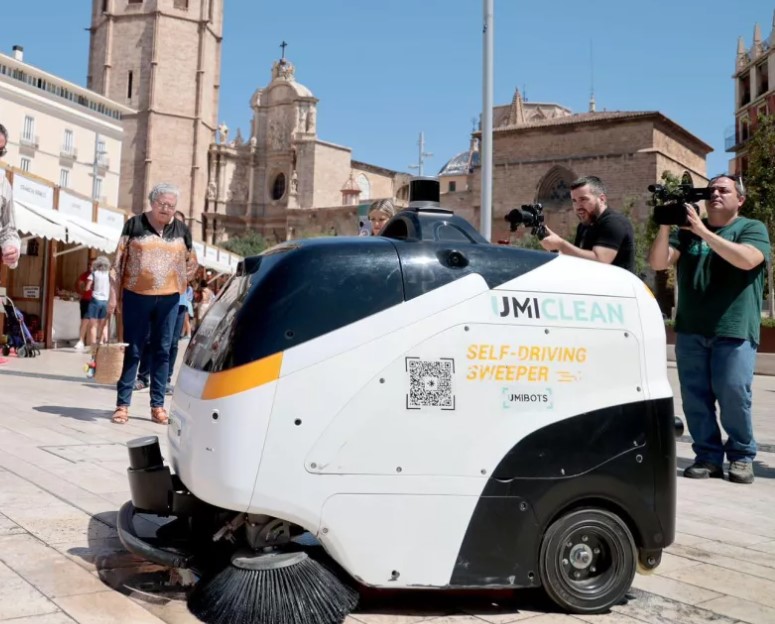Valencia, the vibrant Mediterranean city, consistently continues its path to becoming a Smart City and establishes itself as a pioneer in urban innovation. Anyone who has strolled through the historic center in recent days, especially across the historic Plaza de la Reina or around the lively Mercado Central, may have witnessed a small revolution: UmiClean, an autonomous cleaning robot, is quietly and efficiently doing its job there, cleaning the streets. This futuristic-looking device, playfully dubbed a “giant Roomba” by some, is a visible sign of a comprehensive urban innovation project. Valencia is transforming into an urban laboratory, the aim of which is to significantly improve the quality of life of its residents through the use of new technologies.
UmiClean: High-tech for cleanliness
UmiClean is not just a cleaning robot, but a prime example of the integration of cutting-edge technology into everyday urban life. This autonomous system is capable of cleaning up to 4,000 square meters per hour and moves at a speed of up to 5 km/h. Fully electrically operated, UmiClean vacuums, sweeps and also cleans surfaces with water. Equipped with Artificial Intelligence (AI), highly sensitive sensors and cameras, the robot can be controlled in real time via a digital platform of the city administration. The pilot project is currently focusing on the pedestrian zones in the city center, but an expansion to other areas of Valencia is planned in the coming weeks.
Valencia as an urban innovation test field: The “Sandbox Urbano” model
The use of UmiClean is just one piece of the puzzle within the “Sandbox Urbano” model. This innovative urban regulation turns Valencia into a real test field for innovations. Companies, startups and universities are given the unique opportunity to test their projects under real conditions in public spaces. The success rate within just eight months is impressive: Of 14 evaluated projects, 11 have already been approved and are in the implementation phase. Outstanding examples include:
- PlatjaBot: A robot used to clean beaches.
- MercaBot: Electric delivery robots that revolutionize urban logistics.
- BioSoundscape: Sensors that precisely measure biodiversity using bird sounds.
- HortaTech: Technology that modernizes traditional irrigation systems in agriculture.
Through these initiatives, Valencia is increasingly becoming an attractive place to live and work, especially for people who have an affinity for technology, sustainability and innovation.
Valencia’s future: A magnet for talent and ideas
Mayor María José Catalá emphasizes the importance of this model for urban development. “We offer what no company can achieve alone: a real city as a real space for real innovation,” she explains. This unique ecosystem attracts investments, talent and groundbreaking ideas and positions Valencia as a beacon of the smart city movement. While other Spanish metropolises such as Madrid, Barcelona or Zaragoza are closely monitoring developments in Valencia, the Mediterranean city is currently setting the tone and shaping the future of urban innovation in Spain.




